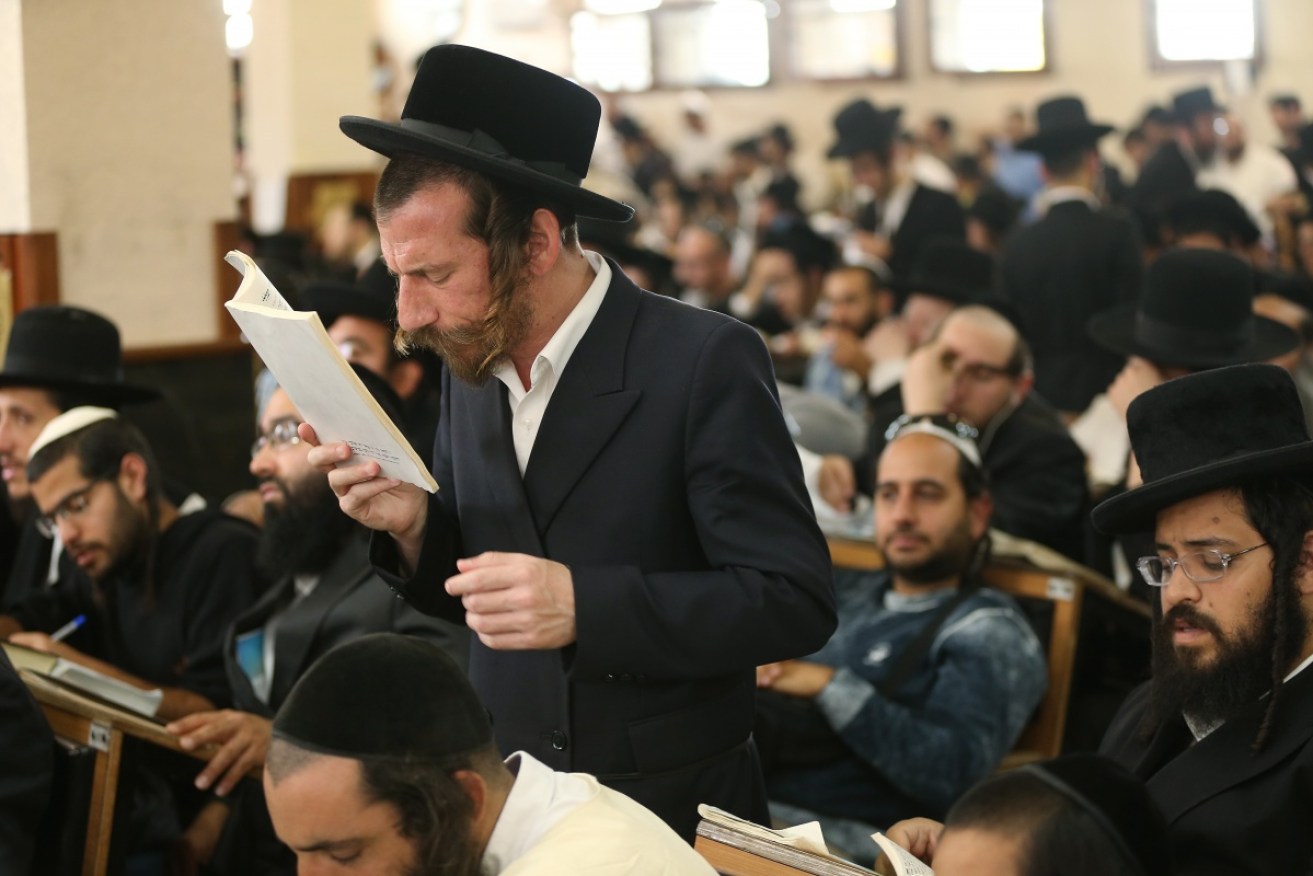Jewish population enters into period of repentance as New Year celebrations end


The Jewish new year is a time for believers to think on the previous year and pray for forgivingness. Photo: Getty
As the Jewish population conclude New Year celebrations, religious believers will enter into a 10-day period of penitence, compelling them to think of misdeeds and repent.
Newly appointed Liberal deputy leader Josh Frydenberg took time off on Monday – his first sitting day as Prime Minister Scott Morrison’s second-in-charge – to commemorate his Hebrew faith on Rosh Hashanah, the Jewish New Year.
He, like the many devout Jews will now begin the Ten Days of Awe, otherwise known as the Ten Days of Repentance.
According to the Torah, Jewish people should during this period “seek the Lord while He may be found; Call upon Him while He is near”.
Rabbi Dr Reuven Hammer wrote for a Jewish media organisation, saying Rosh Hashanah marks the beginning of an “unusual trial” that extends until Yom Kippur – the holiest day of the year for Jews.
He said Jews are encouraged to repent as God decides on what their fate will be for the year ahead.
“The Ten Days of Repentance are crucial to the outcome of the trial, since our verdict is determined both by our attitude toward our misdeeds and by our attempts to rectify them by changing ourselves,” Dr Hammer wrote.
The Jewish new year, which precedes the Ten Days of Repentance, is far from a party-like celebration.
For those unfamiliar with the revered tradition, The New Daily set out to explain how the Jewish population will be welcoming the new year.
Rosh Hashanah begins in the evening of September 9 and ends on the evening of September 11.
In a Twitter post, Iran’s foreign minister Javad Zarif wished the Jewish community this week a peaceful and harmonious New Year.
As the sun gives way to the moon, I wish all my Jewish compatriots and Jews worldwide a very Happy New Year filled with peace and harmony. Happy Rosh Hashanah.
سال نو یهودی مبارک. pic.twitter.com/hG4UgqNV8j— Javad Zarif (@JZarif) September 9, 2018
On Rosh Hashanah, many traditional Jews devote much of their time to praying in a synagogue and refrain from using any technology or electricity.
The Jewish tradition, according to newspaper Jewish Chronicle, teaches that Rosh Hashanah is a solemn time when God begins judging all people – Jews and non-Jews – and grants them a reward or delivers them a punishment according to how they acted over the previous year.
Jews take this time to self-reflect – remember the blessings that God has graced them with – and pray, the Jewish newspaper explains.
Some Jews start this process a month before Rosh Hashanah, otherwise known as “Judgement Day”.

Jews typically wear white when attending a synagogue on Rosh Hashanah. Photo: Getty
In the week leading up to their beginning of the new year, Jews ask God to forgive them for any wrongdoing by reciting the Selichot – a series of prayers for repentance, enabling Jews to express their remorse.
According to Jewish education website Torch, the shofar – a trumpet-like instrument made from a ram’s horn – is typically blown over the course of a synagogue service to dispel evil spirits and remind attendees to ponder on the year that has passed.
Some Jews also visit cemeteries and pray over the graves of their loved ones on Rosh Hashanah.
Celebrations are largely directed towards rejoicing in God’s creation of the first man Adam and the first woman Eve, which is believed to have occurred during this period.
Therefore on Rosh Hashanah, the Jewish community pauses to honour God’s creation of mankind and celebrate the “birthday of humanity”, according to Jewish education website Chabad.
It is customary for Jews to feast on fish heads, apple dipped in honey, and pomegranates during a Rosh Hashanah celebratory meal, the site explains.
The eating of fish heads and discarding of the tails signals a new year where they will be ‘at the top’ and prosperous. It is also a sign of strength.
Apples, believed by Jews to have healing properties, are soaked in honey to pave the way for a ‘sweet year’.
And the seeds of a pomegranate symbolise how fruitful and abundant Jews should be in the coming year.
On the 10th day of the Days of Awe, which will begin on the evening of September 18 and end on the evening of September 19, the Jewish community celebrates Yom Kippur (Day of Atonement) – a 24-hour fast.
Jews are expected to not dwell on their physical needs but ask God to fulfil their spiritual needs through prayer.








